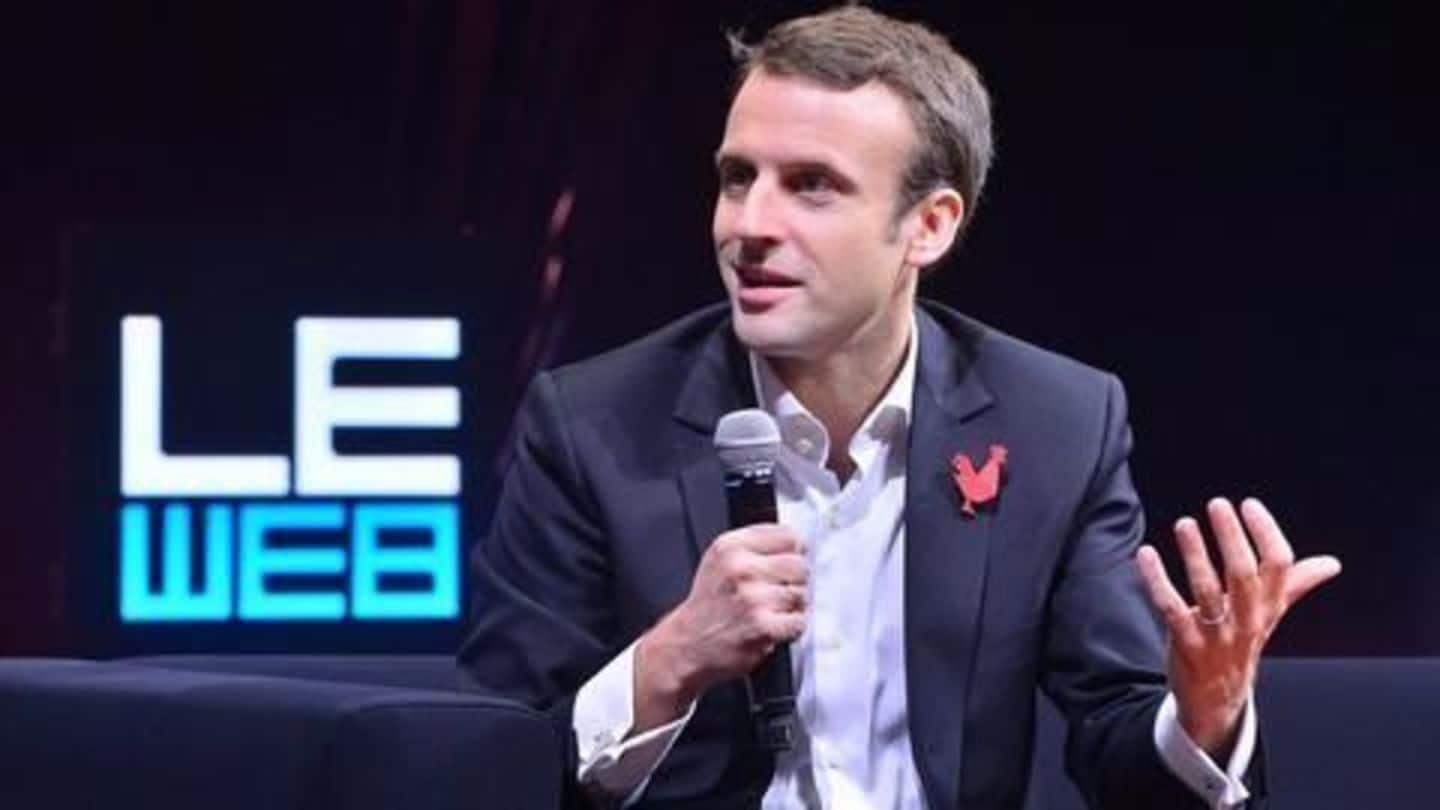
French elections 2017: Macron secures decisive victory over Le Pen
What's the story
As results came in on France's nail biting Presidential race, centrist candidate Emmanuel Macron emerged winner in round two, securing a decisive victory over his far right opponent Marine Le Pen, gathering 65.8% votes, becoming France's youngest President. Speaking to a crowd of supporters at the Louvre, Macron promised to fight divisive forces in France, guarantee its unity and to defend and protect Europe.
Information
Le Pen responds
Following the announcement of results, Le Pen thanked people who voted for her and wished Macron success. She further vowed to start the deep transformation of her Nationalist Front Party and carry it forward to the next round of Parliamentary elections.
Background
What has happened till now?
The first round of elections saw Macron and Le Pen emerge as winners securing 23.9% and 21.4% respectively, with their pro and anti-EU stances, being viewed as a decisive factor in determining France's future orientation to the EU. Campaigning saw high level of polarization between globalists and populists, with defeated candidates joining the Macron bandwagon, urging the people to not vote for Le Pen.
About
Who is Emmanuel Macron?
An ex-investment banker with Rothschild, Macron quit his job to become an economic adviser with President Francois Hollande's government. He launched the En Marche movement in August, after leaving Hollande's socialist party, stating, "it was neither left, nor right wing". He is regarded pro-business and has promoted measures including those to open up regulated sectors of the economy, inviting criticism on eroding workers' rights.
Do you know?
Macron's campaign rhetoric
Macron's campaign promised to improve security by boosting police, military and intelligence and online monitoring of extremism. He further vowed to relax labour laws, grant benefits to the self-employed and bring unemployment rate below 7%, while bringing public spending below 60 billion Euros.
Analysis
What could happen now?
En Marche currently does not hold a single seat in the Parliament. While it is hopeful of winning the parliamentary elections in June, it is likely that the Macron would have to put together a coalition. The stability of the coalition will depend on Macron's ability to muster support, from parties which have so far supported him for the purpose of opposing Le Pen.
Quote
Reactions
While US President Donald Trump tweeted, he looked forward to working with Macron, the EU breathed a sigh of relief with German Chancellor Angela Merkel terming it "a victory for a strong united Europe" and Jean-Claude Juncker, applauding France for choosing a European future.